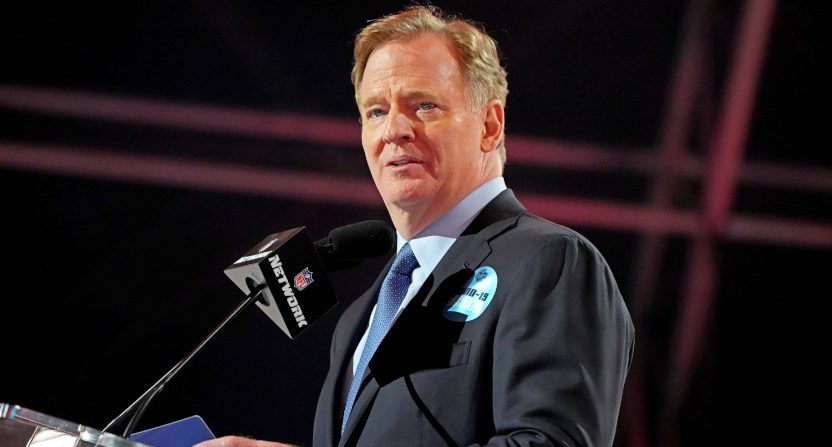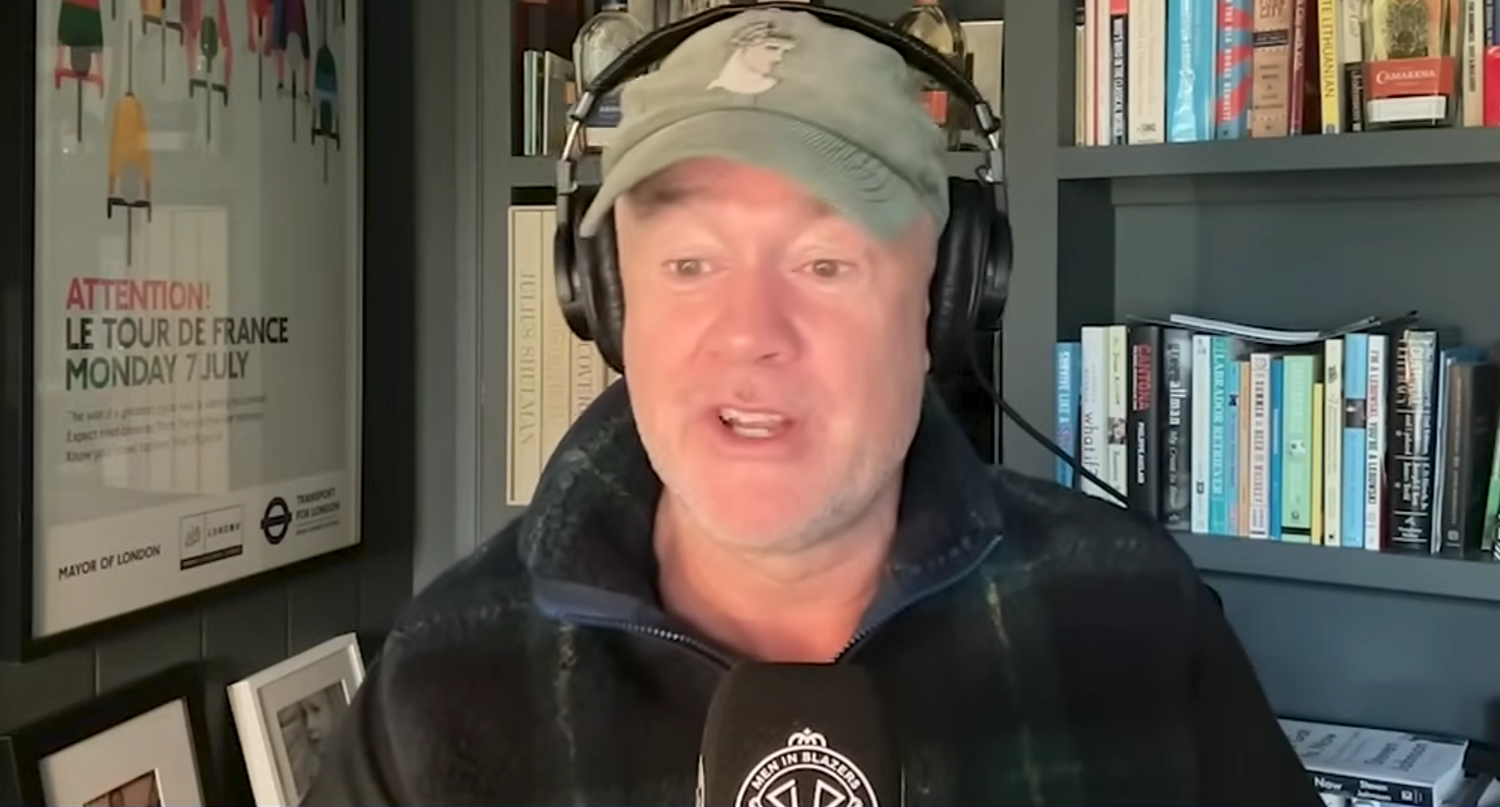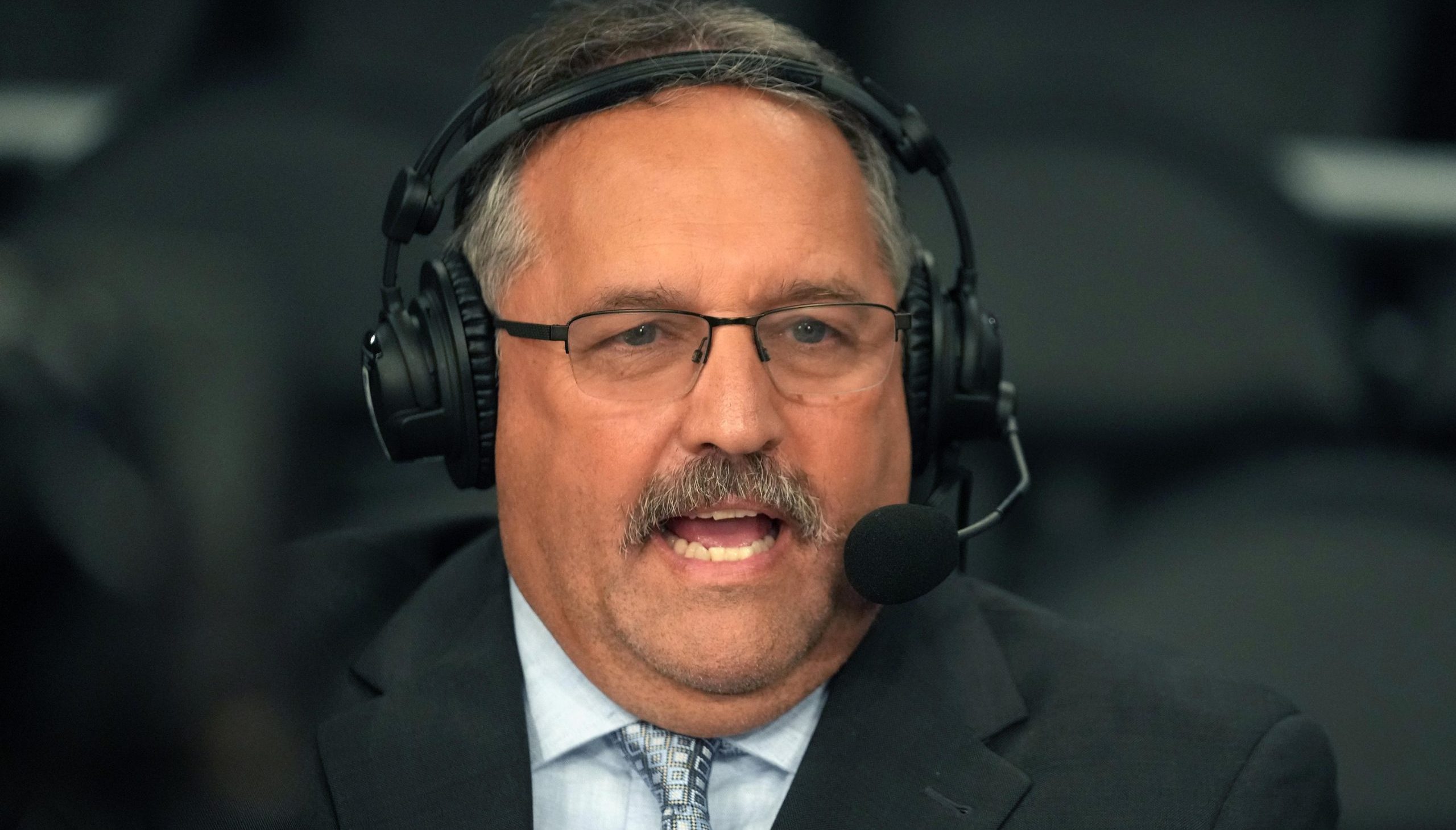The Washington Football Team and the Chicago Blackhawks, and their corresponding leagues, the NFL and NHL, are each in the news for a law firm investigation and report on sexual assault (and in the Washington case, also sexual harassment and other problematic behavior) within those organizations. But those conversations are at far different places at this moment because of the differences in how those law firm reports were handled. So far, the Washington case has only led to an oral report to the NFL, while the Chicago case led to a written report that was released to the public in full. And there’s growing pressure on the NFL to provide at least some increased transparency on their Washington investigation.
Last week, the House Committee on Oversight and Reform sent a letter to NFL commissioner Roger Goodell, “seeking to fully understand this workplace conduct and the league’s response.” On Tuesday, former Washington employees Ana Nunez and Melanie Coburn travelled to the NFL’s New York City offices during league meetings to push for increased transparency on the investigation, speaking to media and delivering a letter to owners, which included “We are calling on you to demand that the NFL make the findings public.”
Of course, that hasn’t yet led to the league doing so. Goodell (seen above at April’s draft) spoke at the end of Tuesday’s meetings and said that there would be no report because some of the people who spoke to investigators) didn’t want their identity revealed. But, as Mike Florio noted at Pro Football Talk, that doesn’t really prohibit the creation of a report at all (it just means it needs some redactions and/or alternate names). And despite Goodell’s comments, on Wednesday, Las Vegas Raiders owner Mark Davis (who’s had his own franchise impacted by this thanks to very selective leaking of emails involving former Raiders’ coach Jon Gruden) said he thinks there should be a written report released to the public. And as congressman Raja Krishnamoorthi (D-Illinois, on the aforementioned House committee) told Adam Longo of WUSA 9 (the CBS D.C. affiliate), Goodell’s comments on cooperating with Congress but not turning over this information don’t seem to add up:
BREAKING: @CongressmanRaja tells me "I'm disturbed by what he said" after NFL Commissioner Roger Goodell pledged NOT to release the #WashingtonFootball investigation.
"I'm not really sure what it means to cooperate with us if he doesn't want to share what we've requested." pic.twitter.com/hgwPrecl44— Adam Longo (@adamlongoTV) October 27, 2021
Yes, producing a written report and making it available to the public is going to lead to criticism of its own based on what’s revealed in that report. We’re seeing that in the Blackhawks’ case; that’s led to their remaining senior management from 2010 (particularly GM Stan Bowman) leaving or being pushed out, to Bowman resigning as GM of USA Hockey as well, and to criticism and potential league/team action against two former Blackhawks’ figures now elsewhere, Winnipeg GM Kevin Cheveldayoff and Florida coach Joel Quenneville. That’s a lot of fallout.
But the decision to fully release this report is positive on several fronts. For one thing, it led to wider participation, with some key interviewees saying they’d only talk to investigators if the report was released. But most importantly, it should ensure that there are no further surprises coming around this report. It’s possible there could still be new developments in the situation based on people who didn’t talk to investigators or evidence they didn’t find, but the report’s findings are fully out there.
And while that comes with some immediate issues for the NHL and the Blackhawks, it seems better in the long run; it shines a spotlight on the widespread failures that happened here, encourages discussion about how to avoid those happening again, and perhaps most importantly, fairly and equally reveals its findings. Everything about everyone in this report was released to the public; that information (once it reached this final report stage, at least) wasn’t filtered through particular team or league officials or particular leaks to particular members of the media.
By contrast, the NFL’s Washington investigation and the 650,000 reviewed emails from former Washington president Bruce Allen (which the league has said “were outside the scope of the workplace culture investigation)” have only led to punishment for small groups of people based on particular subsets of information sent to teams and/or media members. Several Washington executives lost their jobs ahead of this official investigation based on other media stories, and this investigation led to the NFL fining the team $10 million, but the main consequences of the investigation so far have been for Gruden around those leaked emails. (ESPN’s Adam Schefter and NFL general counsel Jeff Pash also each came out looking bad from different sets of leaked emails, but received no discipline.)
And while Goodell told owners “that the league wasn’t behind the leak” of Gruden’s emails (as per ESPN’s Seth Wickersham), it’s hard to believe that. Yes, Goodell may not have been aware of it himself, and he may not even know who did it, so maybe it isn’t a “league” action. But it seems likely someone with the league was involved in some way here, as league employees would seem to be the majority of the people who would have had any access to this. (It’s of course possible these leaks came from people with teams rather than the league, or from someone at the investigating law firm. But the team access seems to have been pretty restricted judging by how the Raiders found out about the Gruden emails, and a law firm conducting sensitive investigations for high-profile clients also probably has some pretty strict information protocols.)
Regardless of who’s been behind the leaks so far, they’re leaks. They’re selected information released by particular people, and those particular people have their own biases and their own potential agendas, all of which affects what they choose to release. And it’s worth keeping in mind too that the information that’s come out so far has been put through another filter, that of the media outlets receiving the leaks; we’ve seen media summaries of the emails rather than the original emails. With what’s happened so far, the information published has been newsworthy, and it’s believable that it’s been a fair summary of what’s been in the emails. But it’s far from the only information involved in these emails and this investigation, and there’s absolutely no reason to believe the Oct. 15 report from Barry Wilner of The Associated Press that there’s nothing else to see here.
Let’s dive into that report for a moment. That report essentially was the equivalent of releasing a summary rather than a full report, except it was filtered through a news organization and didn’t have anyone’s name attached other than Wilner’s. Here’s the key part of it:
The NFL has found no other current team or league personnel to have sent emails containing racist, homophobic or misogynistic language similar to messages written by Jon Gruden that led to his resignation as Las Vegas Raiders coach, according to a person familiar with the documents.
The person familiar with the investigation as well as emails told The Associated Press on Friday that the league “did not identify other areas and other individuals it has to contact at club leadership or league leadership levels.”
That was, and should be, wildly unsatisfying to everyone who doesn’t work for the NFL. What’s especially bad is that it’s not even a “There’s nothing else to see here” from a media member or outlet that’s reviewed the documents, but rather one from a media member speaking to an anonymous source who’s reviewed the information. And if that source works for the league (which there’s a good chance of, if they’re familiar with both the investigation and the emails), they have strong incentive to pass on a “nothing to see here” message regardless of whether or not that’s the truth.
The latest
- Could NFL see next Saudi sportswashing controversy?
- ESPN and NBA have reportedly ‘essentially come to terms’ on deal that would keep Finals on ABC
- G/O Media sells The Onion to ‘Global Tetrahedron,’ ex-NBC reporter Ben Collins to serve as CEO
- Eli Gold on Alabama exit: ‘You can’t argue with city hall.’
There are some real privacy concerns to keep in mind with a wider release of either this report (if a written one is produced) or these emails. First, absolutely, people who spoke to this investigation under a promise of anonymity should have that promise kept. And that may need to involve more than just not including their names; redactions to prevent identification of sources from other details should be considered as well.
Any sort of wider report or email releases needs to be done thoughtfully and carefully. And it needs to not make things worse for the people already impacted by this team’s actions. But that doesn’t mean “no written report” and “no information release.” And Nunez and Coburn’s letter makes that clear.
Yes, the Washington and Chicago situations are not identical. The Blackhawks’ situation revolves around sexual assault committed by one particular party, former video coach Brad Aldrich, and then a wider problem of inaction and muted action from others in the organization once Aldrich’s actions were reported to them. The Washington situation involves awful behavior from a lot of people, and that’s only from what we know so far. And it’s an investigation of a larger scope, focusing on a wider time period and more employees.
But the Chicago report release is a much better way to address this than anything done in the Washington case so far. That release puts the information out there, and while it’s going to lead to a lot of criticism in the short term, it also identifies key things the league and its teams can now work to improve. And it means that there likely won’t be too many further drips about what happened in that specific case; that information is now out there. By contrast, in the case of the NFL and the Washington Football Team, only a small amount of the actual investigation has been revealed to the public, and that only through selected leaks. And the pressure is going to continue to build on those organizations until they release significantly more than they have to date.
[Photo from Kirby Lee/USA Today Sports]





